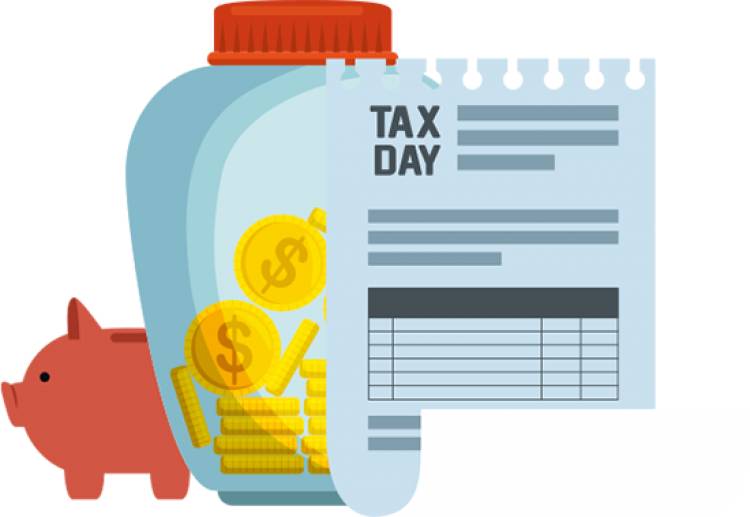
Tax Planning & Preparation Strategies for your Business
At this time of the year, most business owners are busy reviewing transaction receipts and financial statements while finding more ways to save on taxes and tax return preparation. Depending upon the type of your business, you might also be investing your valuable time into preparing taxes. But have you gone about it in steps or planned for it in advance? If not, you might end up making mistakes or missing out on opportunities to file deductions.
Knowing your financial assets, costs, revenue, and all related to your business finances helps you plan your taxes effectively. But this is possible if you gather and review your financial information on time; also, only then you can prepare and file taxes on time. Due to having less time for taxes and given the need to meet the tax return deadline, many business owners hire firms providing professional tax and accounting services.
According to IRS (Internal Revenue Service), more than 80 million US taxpayers hire professionals to prepare and file their tax returns. – Source
Let’s now read some helpful business tax strategies, suggested by business leaders, you can use this tax season.
6 Tax Planning & Preparation Strategies You Should Know
1. Understand the Norms & Maximize Tax Credits
As far as I am concerned, understanding the four types of business taxes levied by the federal government, as The Balance notes, is critical to a small business tax strategy. These include income tax, self-employment tax, employer taxes, and excise taxes.
Businesses must verify that they are maximizing all available deductions and tax credits once they have obtained all of the necessary tax forms:
Small business health care tax credit: Small enterprises with fewer than 25 full-time equivalent employees are eligible for the small business health care tax credit. The typical employee income is $50,000 or less, and the company is required to cover at least half of the employee's health insurance premiums. A person who is uninsured must be offered coverage.
- Adam Wood, Co-Founder of Revenue Geeks
2. A Tax Professional Can Help Reduce Tax Liabilities
Hiring a specialty or niche tax provider is a smart way for any of the "hard" industries like tech, fintech, engineering, manufacturing, pharmaceuticals, or biotech to take advantage of the extremely generous R&D tax credits from both the state and federal governments. No matter the size of a company, business owners can reduce their tax liabilities and put more hard-earned cash back into their pockets.
Yet because they don't know how to properly assess when a job or business process can be classified as R&D, bread and butter accountants miss out on tens of thousands of dollars for their clients. One of our software clients just received $524,000 in tax credits. That's money they can plow back into hiring, hardware, or expansion efforts.
With over 70,000 pages in the US tax code, CPAs have to read and understand tax credits, deductions, and incentives for the federal, state, county, local, and city governments. And they may not have the expertise to handle R&D tax credits.
Any company that claims them does need to carefully document proof that they qualify. Partnering with a specialty tax expert makes the claim process much easier.
- Tyler Kem, Strike Tax Advisory
3. To Save Money on Taxes, Plan Ahead
Don't worry if you didn't do this for the 2021 tax year. The year 2022 represents a fresh start, and you may begin right now. Begin by conducting research and developing a tax strategy that could potentially reduce your tax obligation, or the amount of money you owe, in the future. Consider your projected future income and marginal income tax rate as a starting point.
There are three basic methods for lowering your taxes:
- By postponing revenue to a later year, you can reduce your gross and taxable income.
- Take advantage of all available deductions, such as increasing your RRSP contributions.
- Use all of your available tax credits to reduce the amount of money you owe in taxes.
Understanding the relationship between these three essential concepts and how they fit into your larger tax-planning approach is crucial to successful preparation.
- Gerrid Smith, CMO at Joy Organics
4. Thoroughly Review Financial Documents & Increase Tax Deductions
Tax Planning & Preparation
At the beginning of the year (or even throughout the year), I work with my clients to ensure that their goals align with how much tax they can afford to pay. This includes making sure that they don't take on too much debt, leaving them likely to be over-leveraged and thus likely to face a tax audit. It also includes taking full advantage of all their tax deductions made available by the government.
As part of my service to clients, I review their documentation after completing their returns with other preparers and identify areas where things can be adjusted to minimize their tax and maximize the return they received.
I review:
- Bank interest and bank fees: these deductions must be documented with a detailed statement from the bank account, including what is being deducted.
- RRSP contributions: if the client has contributed to their RRSP, I make sure that they received the right amount of contribution room and therefore did not over-contribute to their RRSP (which would result in a penalty for each dollar over).
- Capital losses: if the client has incurred capital losses during the year, it is important to have these losses applied against capital gains since they are taxed at a lower rate.
- RRSP transfer: if they have an existing RRSP but would like to move it to another brokerage or financial institution, I make sure that this is done to maximize their efficiency and take advantage of better and lower-cost mutual funds.
- Dana Ronald from the Tax Crisis Institute
5. Carefully Select Your Software or Tax Service
If you decide to create your own tax return, don't just go with the lowest option. It's more crucial to pick a tax preparation plan that's right for you. There are a variety of tax filing software solutions available, each with its own pricing and set of features. You may want to consider acquiring a more robust software program if you have more complicated tax difficulties, such as if you own rental property, started a side business, or sold certain assets that resulted in capital gains or losses.
Working with a CPA who is also a tax professional is another option. If you're employing a CPA or a firm to prepare your tax return, check to see if they have the necessary qualifications by looking them up in the CPABC firm directory.
- Bradley Bonnen, Founder & CEO of iFlooded
6. Choose the Right Professional
Professional tax preparers have been taught to be tax law specialists. Many sophisticated tax planning methods, on the other hand, need a thorough grasp of other financial planning subjects such as investment planning, benefit optimization, insurance planning, retirement planning, business planning, and estate planning.
In my opinion, for those who want effective tax planning assistance, a professional or a team of experts with expertise and experience in both tax preparation and complete financial planning is/are excellent. I propose that you first consult with your existing tax preparer. If you believe he or she is not qualified, look for professional certification or a group of professional designations behind their names.
Designations and certificates do not ensure that you will be working with a qualified expert, and they are certainly not the only factors to consider. It does, however, suggest a certain degree of expertise and experience, and it significantly reduces your chances of receiving a non-qualified one, I am convinced.
- Daniel Foley, Manager at Litta
Conclusion
Following the tips shared above, you can prepare your own plan and strategy for business tax management. Regardless of the type and size of your businesses, if you record your financial transactions in real-time and review the same weekly or monthly, you can prepare yourself for the tax season in advance.
However, if you usually stay busy handling your core business aspects and it is difficult to get time for accounting and taxes, you may use reliable, pocket-friendly accounting software with tax prep features. Or, you can also hire an expert tax preparer who can take this burden off your shoulders and free you up, enabling you to have enough time for your daily roles.
Author Bio: Stacey Howard has 6 years of experience in accounting & tax preparation. She has been working as an accountant with reputable firm Cogneesol– accounting and tax preparation services provider. Due to her passion, she has contributed significantly through her write-ups about multiple accounting industries.













